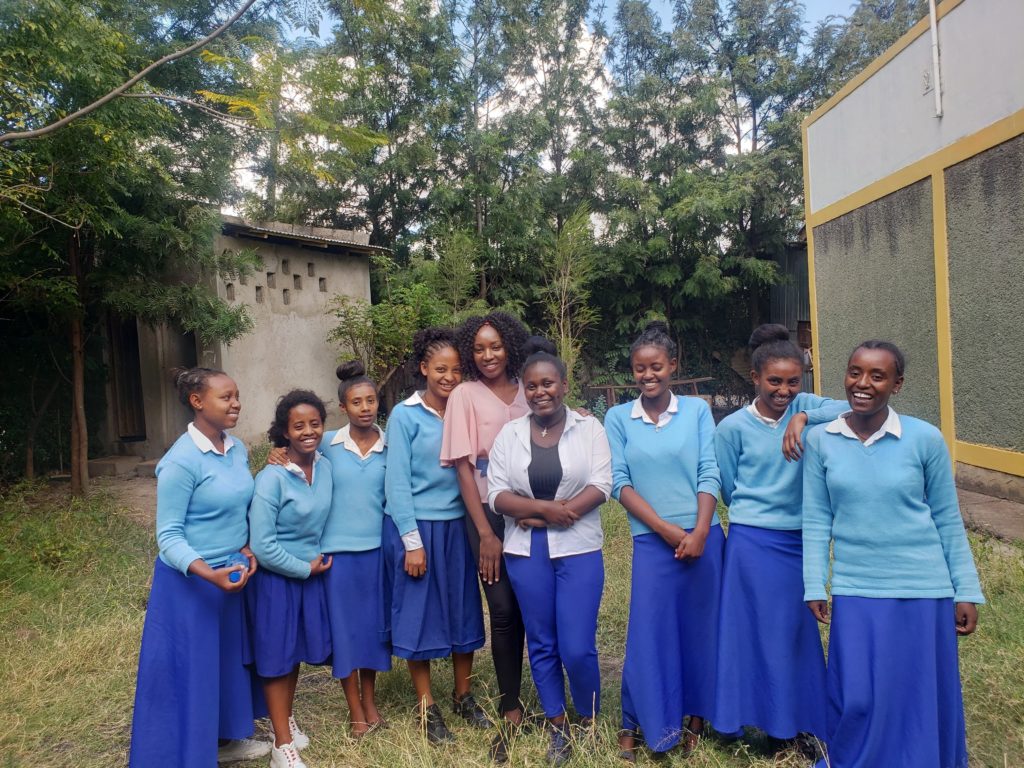Rahab Njihia Veary graduated with a master's in environmental studies (MES) in 2010. Rahab is International Programs Manager with the Beautiful World Canada Foundation.
Where do you work and what do you do?
I work at Beautiful World Canada. A non-profit organization based in Toronto which provides secondary and post-secondary comprehensive scholarships to girls living in Sub-Saharan Africa in the following countries: Rwanda, Sierra Leone, Ethiopia and Uganda. I am responsible for managing all our international programs.
Tell us your work journey after the degree: what went well? What was challenging?
When I joined university for my undergraduate degree, I already knew in what field I wanted to work. I had held several volunteer positions in non-profit organizations and was even offered a full-time position in administrative capacity. I worked for five months in this position and left to join full time studies at the university. I performed very well in my undergraduate level and was lucky to be offered a full scholarship at York University’s FES. I studied for two years at York and received my master’s degree. Armed with great grades and some work experience, my main goal after graduation was to find employment in the international development sector. However, I quickly learned that great grades and wonderful references (from previous jobs) did not always translate to employment. I had a hard time connecting to professional employment in the first two years after graduation. Some of the challenges included the fact that I had no hands-on experience in the positions that I was applying to. In the meantime I needed income, so as I looked for my first full time professional job, I went back to doing short-term admin jobs until an employer saw my resume and my previous experience and decided to give me a chance. That was the first job I got which related directly to my studies. This position was in social housing and I was incredibly lucky to get the job as it opened doors for other opportunities in my field.
How did you use what you learned? When did you feel like “I wish that they had taught me about this in university!”
I am one of the lucky people who get to apply what they learned from school to their work from country field visits to donor-relations. The international development sector is huge and as such, school education (importantly) serves as an introduction to the sector and to the modalities of operation including theories of development, government’s role in international development, and so on. However, the real education begins when you join an organization because all organizations are different (even those with similar missions). My studies played a key role for me for example in identifying the various development models that many organizations practice and I am at a place now where I am able to accept positions based on whether or not I can align my personal ethics to specific organizational cultures.
Thinking back to when you were in high school, what made you want to get into this? How does what you are doing match, and differ, from what you thought?
I was born in an economically poor country, but I was lucky to have parents who could afford to send all my siblings and I to school. Seeing some of my childhood friends drop out of school due to lack of school fees or food was heartbreaking. Later my parents sent me to Canada for further studies and I vowed that somehow, I would contribute towards promoting education for all the poor children (as I could see that education was key to unlocking children’s potential). I did not have a plan on how I would do this, but I knew that arming myself with a degree in international development was a start. It took me many volunteer hours, long papers and exams as well as odd jobs to finally arrive at my dream job.
Any other advice for people thinking of an undergrad environmental degree?
This is one of the best degrees you can get. It is very flexible and allows you to get creative. When you graduate, do not turn away job offers because they do not relate to your field of studies. Many job-skills are transferrable, and every job offers a chance to learn and grow. However, keep your dreams alive and have a passion for something positive.


